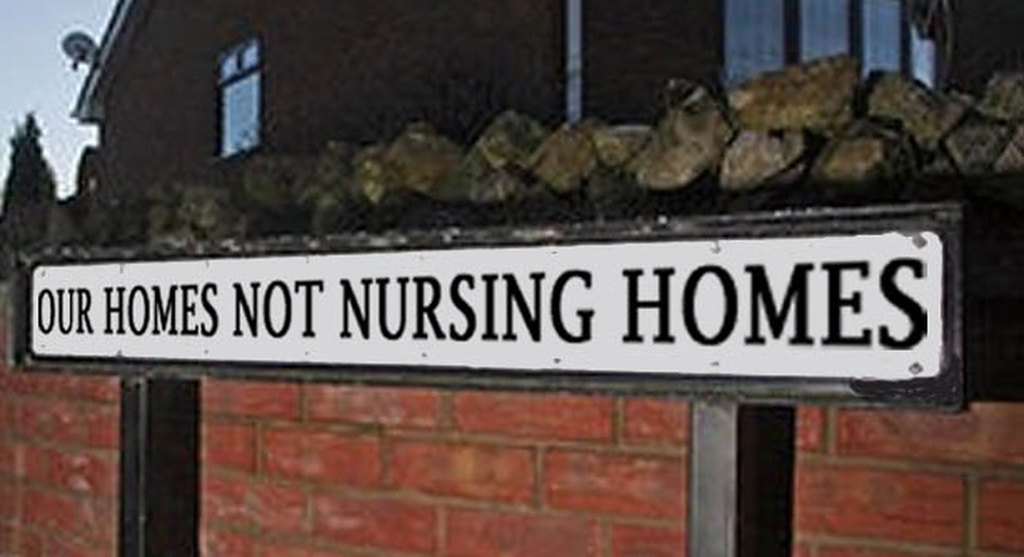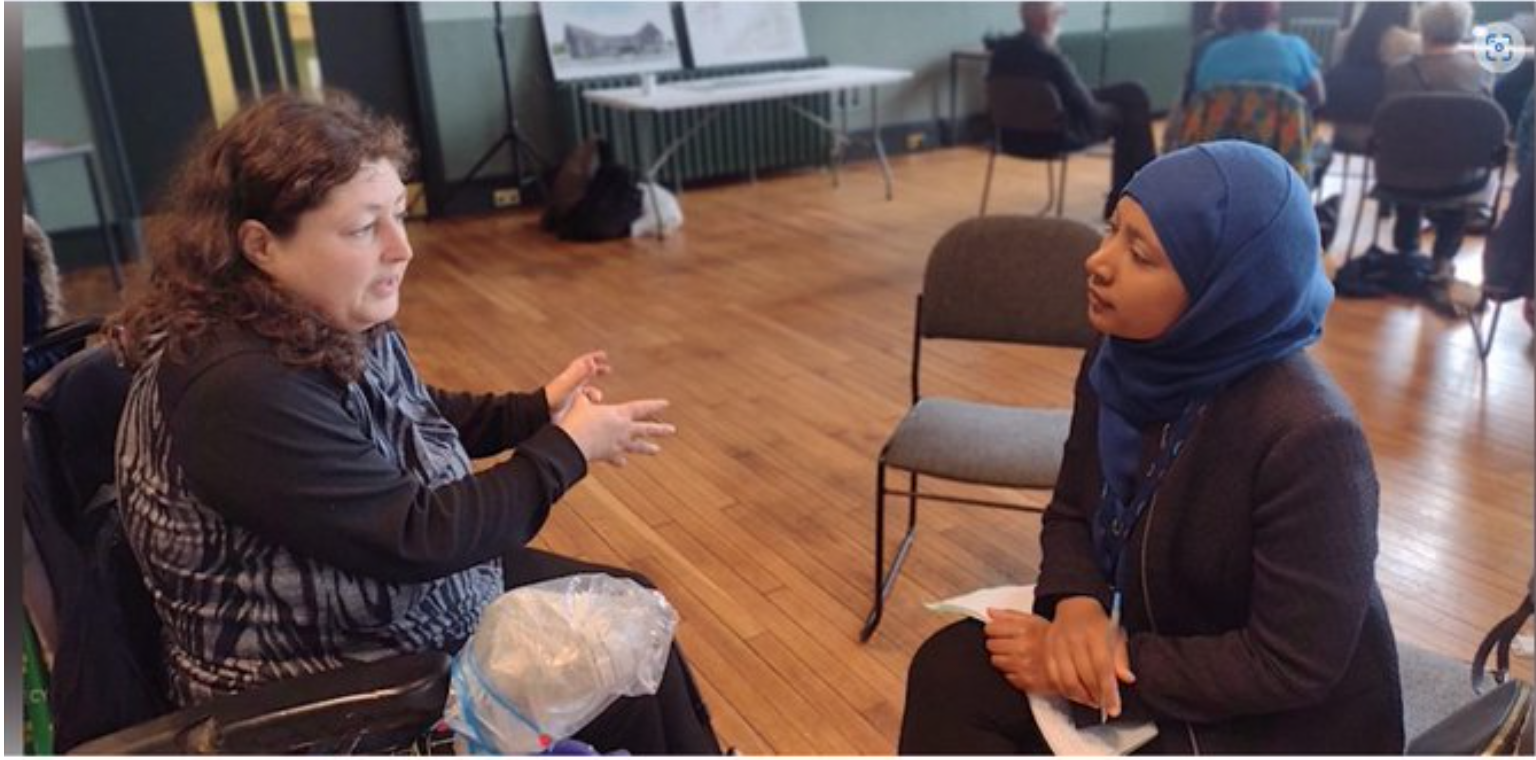By Joan Ruthurford
I'm a retired town planner with an interest in campaigning for a more inclusive built environment. I supported the Greater Manchester Coalition of Disabled People (GMCDP) in responding to the Government's recent consultation on 'Raising accessibility standards for new homes'. It will probably surprise no-one to learn that the consultation was framed in technical language and was clearly aimed at developers, rather than at the people who would actually benefit from accessible housing, that is, older and disabled people.
The consultation asked for opinions about five options. GMCDP supported Option 4: To mandate the current M4(2) - accessible / adaptable - requirement in the Building Regulations as a minimum standard for all new homes, with M4(1) - the current minimum - applying by exception only. A set percentage of M4(3) - wheelchair accessible - homes would also be applied in all areas of the country. GMCDP advocated a minimum of 10% wheelchair-accessible housing, which has been the standard in the London Plan for a decade.
The draft Greater Manchester Strategic Framework proposed M4(2) as the minimum for new homes, but had no standard for wheelchair-accessible housing.
GMCDP is one of the oldest disabled people's organisations in the country (founded in 1985) and has long campaigned for accessible and adaptable homes so that disabled people can choose to live independent lives.
GMCDP are currently working with the People's History Museum in Manchester to put together a public exhibition on the theme of 'Nothing About Us Without Us' (the history of the disabled people's movement). As part of the exhibition GMCDP have interviewed a number of disabled people about their experience of living independently during the pandemic. A film of these interviews is being compiled. The consistent response from disabled people is that 'Independent Living Saves Lives'.
Most disabled people would prefer to live in a home of their own that has been designed to be accessible or has been adapted to meet their needs. Many disabled people are prevented from doing this by lack of choice. The pandemic has emphasised the significant disadvantages of living in a residential institution compared with living in a home of one's own.
If a disabled person lives independently - that is, in an accessible home - they have control over the number of visitors. They can make sure that appropriate Personal Protective Equipment is worn and the necessary protocols followed. This reduces the risk of infection compared with living in a residential institution, where the person does not have the same level of control and the incidence of illness - and sadly even death - has been very high.
The restrictions on residents in (and visitors to) care homes and other institutions have consistently been tighter than for disabled people living in their own homes. Recent press reports have confirmed that the more restrictive controls on movement imposed on care home residents have lead to depression and had other long term impacts on people's mental health and well-being.
The Government's consultation on accessible new homes ended in December 2020. Since that date GMCDP has continued to raise the issue with Greater Manchester MPs. In response to our MPs, Lord Greenhalgh (Minister for Building Safety, Fire and Communities) said:
"The consultation is part of a full review of Part M of the Building Regulations... It includes a research programme on the prevalence and demographics of impairment in England and ergonomic requirements and experiences of disabled people."
Lord Greenhalgh states that the Government is currently considering responses to the consultation and will publish a report 'in due course' setting out the next steps. (The consultation began on 8 September 2020 and the closing date for comments was 1 December 2020, that is, six months ago).
GMCDP's response to Lord Greenhalgh is that a research programme as described is irrelevant and would only serve to delay the essential upgrade of the Building Regulations to a mandatory minimum accessibility standard. GMCDP pointed out that there is currently a national shortage of accessible and adaptable new housing for disabled people. That our population is ageing and increasing age often brings impairment and that there is an as-yet-unknown impact of Long Covid-related impairments. All these issues point to the urgent need to increase the amount of accessible new housing as quickly as possible.
GMCDP asked for a commitment from the Government to a date when the outcome of the consultation will be made public as it is clearly of significant interest and concern to disabled people and their organisations. Further, if the decision is taken to mandate higher accessibility standards for all new homes, a commitment to a date when this will happen.
GMCDP also asked for clarification about the proposed research into the 'ergonomic requirements and experiences of disabled people'. As the main active organisation representing disabled people of all impairment groups in a major city region, GMCDP would have hoped to be included in this research, but have not been approached to take part.
I attach two links that provide further information about this topic.
https://gmcdp.com/care-homes-covid-19-and-independent-living
Joan Rutherford is a retired town planner, writing on behalf of the Greater Manchester Coalition of Disabled People.
18 July 2021





